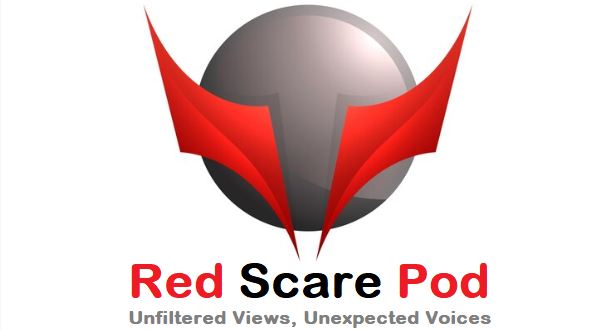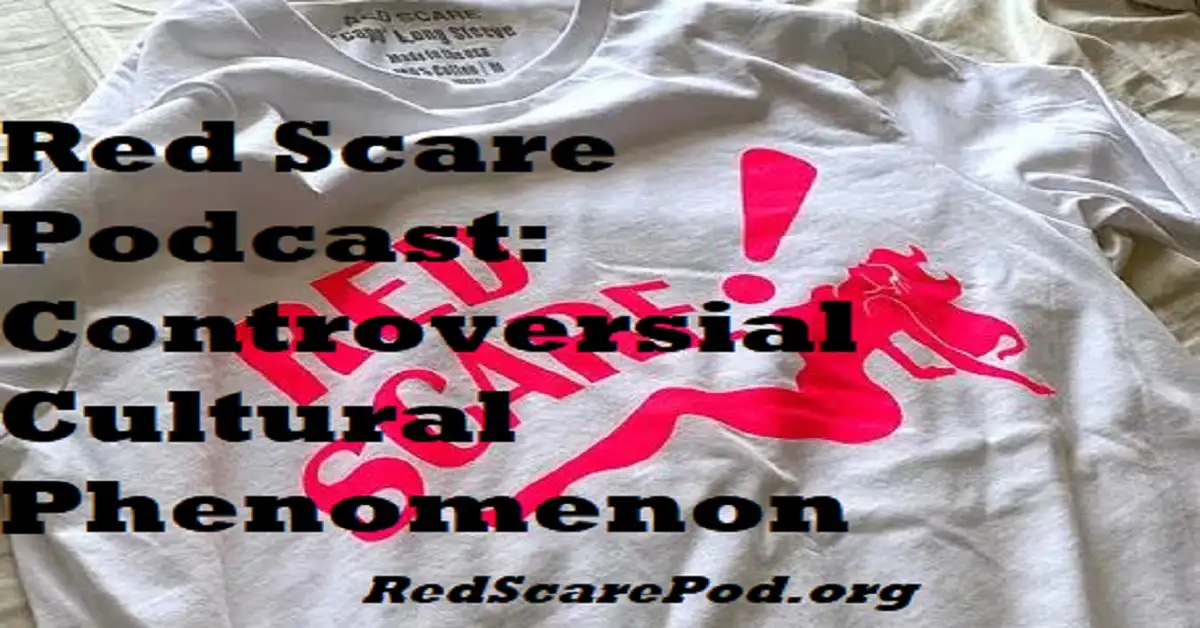Red Scare Podcast: A Deep Dive into the Controversial Cultural Phenomenon
Table of Contents
- Introduction
- The Origins of the Red Scare Podcast
- The Hosts: Anna Khachiyan and Dasha Nekrasova
- Themes and Topics Covered
- Political and Cultural Influence
- Criticism and Controversy
- The Podcast’s Unique Aesthetic and Style
- Comparisons with Other Political and Cultural Podcasts
- Audience and Community Reception
- The Future of Red Scare Podcast
- Conclusion
- FAQs
Introduction
In today’s digital media landscape, podcasts have emerged as powerful platforms for discussing politics, culture, and philosophy. One such podcast that has gained both admiration and controversy is Red Scare, hosted by Anna Khachiyan and Dasha Nekrasova. Since its launch in 2018, Red Scare has attracted a loyal following with its sharp cultural critiques, ironic humor, and willingness to challenge dominant political narratives.
The podcast’s name itself is a layered reference to both historical anti-communist hysteria and contemporary ideological battles in the media. With a unique blend of intellectual discourse and pop culture analysis, Anna and Dasha explore topics such as feminism, neoliberalism, cancel culture, and art, often provoking intense reactions from listeners and critics alike.
Despite being labeled reactionary by some and progressive by others, Red Scare remains difficult to categorize. The show has inspired a cult-like fanbase while simultaneously igniting debates about irony, political correctness, and media elitism. This article will explore the origins, themes, and cultural impact of the Red Scare Podcast, examining why it continues to captivate and polarize audiences.
| Category | Details |
|---|---|
| Podcast Name | Red Scare |
| Hosts | Anna Khachiyan & Dasha Nekrasova |
| Launch Year | 2018 |
| Main Themes | Politics, Culture, Feminism, Art, Philosophy, Internet Culture |
| Tone & Style | Ironic, Intellectual, Provocative, Conversational |
| Political Alignment | Contrarian, Critical of Mainstream Left & Neoliberalism |
| Notable Influences | Postmodernism, Marxism, Critical Theory, Internet Culture |
| Common Topics | Cancel Culture, Neoliberalism, Celebrity Scandals, Media Critique |
| Platforms Available | Apple Podcasts, Spotify, Patreon |
| Audience | Politically disillusioned millennials & Gen Z, artists, intellectuals |
| Criticism | Accused of being reactionary, elitist, and overly ironic |
| Cultural Impact | Inspired discourse on irony in politics, media skepticism, and alternative cultural commentary |
| Future Prospects | Continues to grow in influence, may adapt to new media trends |
The Origins of the Red Scare Podcast
Red Scare was launched in March 2018 at a time when cultural discourse in the U.S. was becoming increasingly polarized. The podcast’s name itself is a play on two historical meanings: the anti-communist hysteria of the 20th century and a more modern sense of cultural and ideological persecution, particularly among young leftist intellectuals.
Both hosts, Anna and Dasha, emerged from art and media circles in New York City. Their early episodes featured discussions on contemporary political events, feminism, and celebrity culture, often adopting a tone that was critical of both mainstream liberalism and extreme leftist tendencies.
The Hosts: Anna Khachiyan and Dasha Nekrasova
Anna Khachiyan
Anna Khachiyan is an art critic and cultural commentator of Soviet-Russian descent. She brings a deep knowledge of philosophy, literature, and media theory to the show. Before starting Red Scare, she was known for her writing in various publications, focusing on postmodernism, critical theory, and cultural critique.
Dasha Nekrasova
Dasha Nekrasova, a Belarusian-American actress and writer, gained attention as the “Sailor Socialism” girl after a viral interview where she defended socialism in a sarcastic yet charming manner. In addition to her work on the podcast, she has acted in independent films and directed her own projects, including the critically acclaimed horror film The Scary of Sixty-First.
Together, Anna and Dasha create a dynamic and sometimes provocative dialogue that challenges mainstream narratives in ways that both entertain and unsettle their listeners.
Themes and Topics Covered
The Red Scare Podcast covers a wide range of topics, blending high-brow cultural analysis with casual, off-the-cuff commentary. Some of the most frequent themes include:
- Politics – The hosts critique mainstream liberalism, neoliberalism, and the contradictions within leftist movements.
- Feminism and Gender Issues – They often discuss modern feminism from a skeptical perspective, challenging dominant narratives about female empowerment and representation.
- Celebrity and Pop Culture – The podcast frequently dissects the behaviors of public figures, offering biting takes on Hollywood, influencers, and social media trends.
- Art and Literature – Both hosts have backgrounds in the arts and frequently reference literature, philosophy, and film in their discussions.
- Internet Culture – Red Scare often explores the impact of online discourse, cancel culture, and the evolving role of social media in shaping public opinion.
Political and Cultural Influence
Though Red Scare is not strictly aligned with any political ideology, it has been associated with the “dirtbag left,” a term used to describe leftists who reject the political correctness and moralizing tone of mainstream liberalism. However, the hosts often challenge progressive orthodoxy, leading some critics to label them as reactionary or even conservative.
The podcast has influenced a growing segment of politically disillusioned young people who seek an alternative to mainstream media narratives. It has also been referenced in wider cultural discussions about irony, postmodernism, and the shifting political landscape of millennials and Gen Z.
Criticism and Controversy
Like any politically charged media project, Red Scare has faced significant criticism. Some of the main points of contention include:
- Accusations of Reactionary Politics – While the hosts reject neoliberalism, some critics argue they are overly critical of progressive movements, sometimes veering into reactionary territory.
- Use of Irony and Humor – The show’s ironic tone makes it difficult to discern when the hosts are being serious or merely provocative. This has led to misinterpretations and controversy.
- Alleged Elitism – Some listeners feel that Anna and Dasha’s cultural references and intellectual discussions can be alienating or condescending.
- Associations with the Online Right – While neither host explicitly identifies with right-wing politics, their willingness to critique progressive movements has led to accusations of pandering to reactionary audiences.
Despite these controversies, the podcast maintains a loyal following and continues to attract new listeners.
The Podcast’s Unique Aesthetic and Style
One of Red Scare’s distinguishing features is its aesthetic. The hosts cultivate an image that blends Soviet nostalgia, New York intellectualism, and early 2000s indie sleaze. This extends to their personal fashion, music references, and even the way they structure their conversations.
Rather than adopting the highly produced, polished style of many mainstream podcasts, Red Scare embraces a raw, conversational format that feels more like eavesdropping on a late-night conversation between two friends.
Comparisons with Other Political and Cultural Podcasts
While Red Scare has carved out its own niche, it is often compared to other politically charged podcasts such as:
- Chapo Trap House – Another leftist-leaning podcast with a more comedic and aggressive tone.
- Blocked and Reported – A podcast that critiques internet culture and media bias.
- The Fifth Column – A show that similarly blends cultural and political commentary with humor.
Unlike many of these podcasts, Red Scare leans heavily on irony and high-culture references, making it both enigmatic and divisive.
Audience and Community Reception
Red Scare has cultivated a dedicated audience that includes artists, writers, and politically curious young people. It has also inspired a wave of “Red Scare adjacent” discourse across social media platforms like Twitter and Instagram, where fans discuss episodes, memes, and ideas promoted by the hosts.
The Future of Red Scare Podcast
As Red Scare continues to evolve, it remains to be seen whether it will grow in influence or fade into obscurity. With podcasting itself undergoing changes, the show may need to adapt to remain relevant. However, its unique blend of humor, critique, and cultural commentary suggests that it will continue to spark discussion for years to come.
Conclusion
The Red Scare Podcast stands as a testament to the shifting media landscape, where irony, critique, and cultural commentary intersect. By refusing to conform to mainstream political narratives, Anna Khachiyan and Dasha Nekrasova have crafted a space where nuanced, often controversial discussions can thrive.
Despite criticism, the podcast has influenced a generation of politically curious listeners who appreciate its raw, unfiltered style. Whether dissecting Hollywood scandals, critiquing modern feminism, or analyzing philosophical texts, Red Scare provides a perspective that is both provocative and entertaining.
The show’s future remains uncertain, but its impact is undeniable. It has reshaped conversations about culture, art, and ideology, proving that independent media can still disrupt mainstream discourse. Love it or hate it, Red Scare continues to challenge, amuse, and provoke thought—cementing its place as one of the most unique and controversial podcasts of its time.
FAQs
Q1: Where can I listen to the Red Scare Podcast?
Red Scare is available on platforms like Apple Podcasts, Spotify, and Patreon (for premium content).
Q2: Is Red Scare a leftist podcast?
The hosts challenge mainstream leftism but do not align strictly with any political ideology. Their views mix elements of leftist, conservative, and contrarian thought.
Q3: What makes Red Scare different from other political podcasts?
Its blend of irony, cultural critique, and highbrow references sets it apart from other political and pop culture podcasts.
Q4: Is Red Scare controversial?
Yes, the podcast has been criticized for its takes on feminism, cancel culture, and political correctness.
Q5: Who listens to Red Scare?
The podcast appeals to a mix of artists, intellectuals, and politically disillusioned young people who enjoy critical and often provocative discussions.





